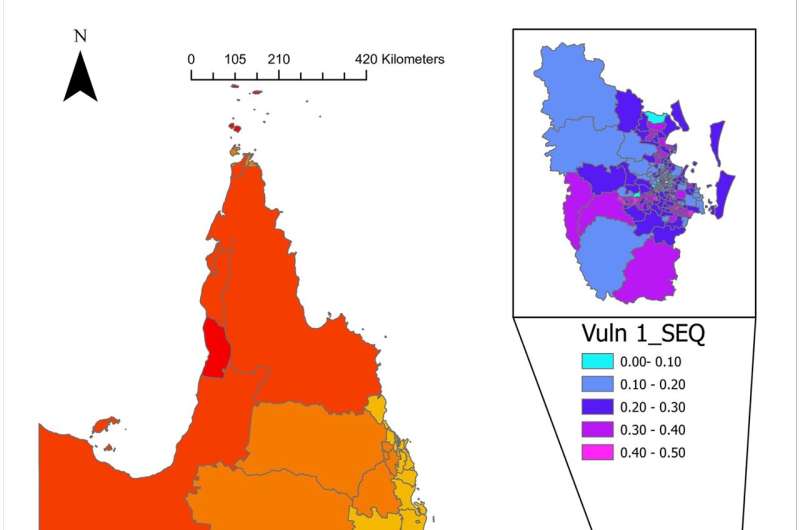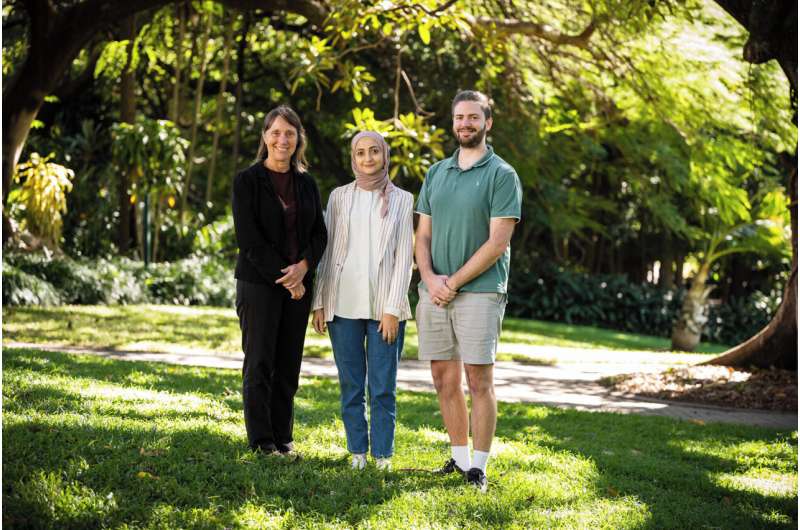This article has been reviewed according to Science X's editorial process and policies. Editors have highlighted the following attributes while ensuring the content's credibility:
fact-checked
peer-reviewed publication
trusted source
proofread
Study highlights pre-school regional divide and influence on children's development

A data analysis of Queensland children has found that those who attended pre-school displayed lower levels of developmental vulnerabilities based on an educational measure mapping progress during their first year.
The Australian Early Development Census is held every three years when children are in their first year of school to establish scores relating to physical health and well-being, social and emotional maturity, language, and cognitive skills as well as communication and general knowledge.
Based on the 2018–2019 census, researchers from the QUT Center for Data Science and Children's Health Queensland investigated the influence of pre-school attendance and children's development during their first year of full-time school based on aggregated data about geographical location and socio-economic factors.
Researchers defined developmental vulnerability as not being able to cope with the school day, by being tired, hungry with low energy, unable to get along with others or aggressive behavior and trouble with reading, writing or numbers.
The findings, published in PLOS One, varied by region, with the identification of three distinct clusters, characterized by different social demographic variables including country of birth, English as the primary language, remoteness, and socio-economic disadvantage.

"Our analysis demonstrated that children who had attended preschool displayed lower levels of developmental vulnerability in comparison to those who had not," Ph.D. researcher Wala Draidi Areed said. "Demographic and educational factors are essential, influential factors of early childhood development."
Recommendations from the research include:
- Establishing collaborative committees for regular communication and information sharing.
- Ensuring secure data exchange with privacy measures in place.
- Promoting interprofessional training for health care professionals and educators.
- Embedding health promotion activities in schools.
- Engaging families, and community organizations in joint efforts.
The pre-school program could be either at a dedicated pre-school or a day care center.
In 2021, 85% of all 4-year-olds and 22% of all 5-year-old children were enrolled in preschool programs in Australia.
Queensland's overall preschool participation rate was the lowest among all Australian states and varied geographically.
Distinguished Professor Kerrie Mengersen, who is the Director of QUT's Center for Data Science, said the results emphasized a need for health and education sectors to target specific areas.
Data for the 2021 census were not available at the time of the study. Future research is proposed to compare results and ascertain if the trend has changed over time.
More information: Wala Draidi Areed et al, Assessing the spatial structure of the association between attendance at preschool and children's developmental vulnerabilities in Queensland, Australia, PLOS ONE (2023). DOI: 10.1371/journal.pone.0285409
Journal information: PLoS ONE
Provided by Queensland University of Technology





















